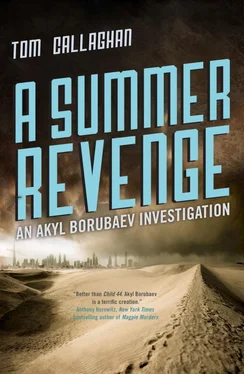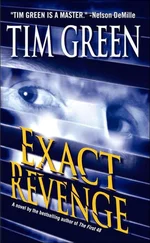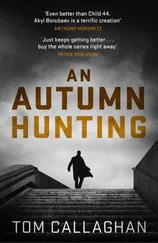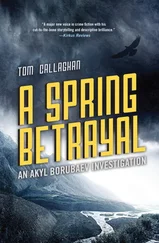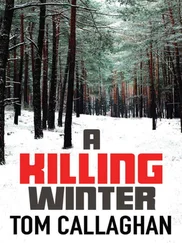I tried calling Saltanat but her mobile was switched off. As my taxi stop-started in the traffic, my options didn’t look great. Without Natasha to give me the access codes, the SIM card was worthless to Tynaliev. Giving the card to the Chechens in exchange for Natasha was suicidal for both her and me. The only viable plan was to find Natasha, rescue her from a gang of terrorist thugs and then somehow get her back to Bishkek to face her lover’s ire. If only all jobs were that easy.
The only lead I had was waiting for me back in the Denver Hotel, handcuffed to the bed and nursing a sense of grievance. Perhaps I’d have to use the fork under the fingernails for real this time.
As we pulled off Sheikh Zayed Road and onto Bank Street, the traffic slowed down, crawled, stopped. In the distance I could see flashing blue lights, could hear police sirens wailing almost loud enough to drown the call to prayer. After ten minutes during which we’d moved less than ten centimeters, I gave up, paid the driver and stepped out of the air-conditioned chill and into the heat.
As I walked up toward the port, I saw that the police cars were all parked by the side street where the Denver Hotel made tourists as uncomfortable as possible. As I turned into the street, I could see that the management had taken their policy to a new level. The top two floors appeared to have been completely burned out, with soot and smoke stains smeared across the already grimy facade. For a moment I wondered if the Filipino Golden Fork restaurant next door had had some sort of major crisis with the grilled chicken adobo, but while that would account for the smoke and bitter smell, it didn’t explain the shattered window frames.
A police tape separated the hotel from the rest of the street, and a uniformed sergeant barred my way as I tried to get through. I explained I was staying at the hotel, needed to collect my passport and belongings.
“No point going in,” he said. “All ashes by now.”
Before I could reply, two ambulance men appeared from the lobby, carrying a stretcher with an all-too-ominous shape. A charred arm hung down below the blanket, as if trailing a leisurely hand in some cool lake. A third ambulance man carried part of a metal bedframe, to which the dead man was still handcuffed. It had to be Kulayev, but I decided to keep the information to myself.
I’ve seen the victims of fire-bomb attacks before; if you’re very lucky, or the arsonists very incompetent, you might be able to get an identity from dental records. Usually you just have to rely on learning who hated the victim, then track them down.
A corporal approached the sergeant, and I did my best to make myself invisible.
“Looks like a petrol bomb, Room 503. The desk clerk says the room was rented to some Kyrgyz guy. We didn’t find a passport. Strange he was handcuffed to the bed.”
“Pervert, most likely,” said the sergeant. “Maybe a lovers’ quarrel. They can get very nasty.”
“No passport, though. Don’t you think that’s odd, Sergeant?”
Akyl Borubaev’s passport was tucked away, safe in my pocket. And if the authorities thought I was dead, that might work to my advantage. No one goes hunting for a man if they think he’s in the morgue.
As I watched, one of the ambulance men stumbled, and the arm hanging from the stretcher gave a languid wave, the sort that dictators give to the public from behind the bulletproof windows of their luxury limousines. There are times when murder switches from tragedy to comedy, all part of some meaningless cosmic joke. And then the thought of the victim’s terror, the pain tearing through them, the sense that everything so far amounts to nothing all return, and the smile turns back into a snarl.
I walked away, not wanting the sergeant’s attention to focus on me. I didn’t know who had killed Kulayev, but he hadn’t died smoking in bed. Someone entered the hotel, with or without the knowledge of the desk clerk, walked up and picked the lock of my room. Maybe they were hoping to find clues or even discover me napping on the bed, ripe for killing.
When they found Kulayev there, they had immediately been forced into a hard decision. Why was he there? What had he said? Who had he betrayed? Kulayev would have told them he’d given nothing away, begged them to believe him, sworn his fidelity to the group’s ambitions. But then he would say that, wouldn’t he? Perhaps they’d argued among themselves, perhaps one even tried to defend Kulayev as he sat on the bed, listening to his fate, pleading his cause.
I hoped that one of his former colleagues would have had the compassion to simply shoot Kulayev in the head and end the debate. Better a few seconds of terror and then nothingness than seeing the others leave, the door ajar, the mattress already starting to smolder and give off thick fumes, the frantic struggle to escape, skin fraying against the unforgiving handcuffs. The heat getting closer, the air hard to breathe, choking as his feet began to burn, the roast-meat stink of flesh starting to cook. I wouldn’t wish death by being burned alive on anyone.
With Kulayev now officially unable to supply me with any useful information, I realized I had no alternative but to call on Saltanat’s information. I wondered why I was so reluctant, decided it was because, though I might have loved her, I didn’t trust her. And with Tynaliev hovering above this case like some angel of death, I couldn’t afford to let romance fuck me over.
I took refuge from the sun in a small coffee shop that looked as if it had been there since Dubai was founded and hadn’t been cleaned since, and ordered iced tea. I knew my first priority was finding and rescuing Natasha. Quite how I could do that was a little unclear, but I knew that, given Kulayev’s unavoidable absence, I had to initiate something to bring Natasha’s captors out into open ground.
But first of all there was something I had to do, something that couldn’t be put off any longer.
I picked up my phone and started to dial.
I’d been beaten up, verbally at least, by Tynaliev before. He was a master of the brutal insult, the unconcealed threat. But this time was different. I’d found the girl, then lost her, and Tynaliev wasn’t the sort of man who let failure go unpunished. At the same time, Natasha wasn’t his priority. If I’d let someone run away with ten million dollars, a girl wouldn’t be top of my list either.
“You’ve got the information?”
I admitted that I had.
“And have you read it?”
“No, that wasn’t part of the job. And besides, it’s been encrypted.”
“What do you mean, encrypted?”
“Natasha got someone to change the file access, so only she can open the documents, with a new code that only she has.”
Tynaliev paused for a moment. Even over the international line I could hear the suppressed rage in his voice.
“Let me understand you correctly, Inspector. You have the files, but they’re useless without the girl to open them?”
I was waiting for Tynaliev to order me back to Bishkek, bringing the file with me. Of course, once I’d done that, he couldn’t take the risk of me having read them, so I’d be found face down with my gun in my mouth and a bullet in the brain. TOP MURDER SQUAD EX-INSPECTOR IN DEPRESSION SUICIDE. I had to make the minister realize I was still indispensable.
“You could bring the files here; I’m sure we can have them hacked,” Tynaliev said, replacing rage with an even more worrying façade of calm.
“There’s a problem with that, Minister,” I lied. “The girl told me that during the encryption she’d had a fail-safe destruct mechanism installed. Without the right code number, the documents are automatically wiped.”
Читать дальше
